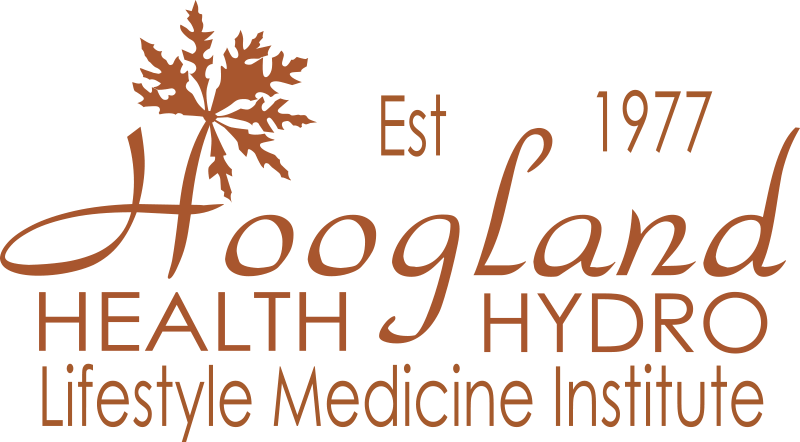Mental health has been written about for over 3,500 years, and expressing aspects of mental health follows soon after we are able to immortalise our internal struggles through art and language.
Good mental health is not unique to humans, either. Joy, anxiety, depression, mourning, chronic pain, a variety of stress responses, and states of excitement and euphoria have been identified in an increasing number of creatures on Earth.
Our diverse family pets give us an inkling of the complex, often emotional interactions of a wide range of living creatures, including spiders, snakes, fish, birds, lizards, cats, pigs, chickens, rats, rabbits, dogs, and horses.
Furry companions express a range of emotions which will continue to paw at our souls long after they’re gone.
But it is not only the characters we choose to share our home with, which can be emotional. Bees have been observed expressing joy, anxiety, fearfulness and optimism. Seahorses are well known for their romantic behaviour. Octopuses can experience curiosity and excitement, while crows are some of the most emotionally expressive creatures on Earth.
Life has been trying to make sense of emotions forever. It is confusing, conflicting, illogical, and primal.
We try to define it. We come up with rules to contain it, strategies to channel it, medication to normalise it, and rituals to express it.
If anything will separate true life from AI, it is that life is emotional. Emotions can be mimicked, judged, and analysed, but they cannot be experienced without life.
The fear and excitement, the sadness and joy, the despair and hope, the resignation and determination, the jealousy and pride, the irritation and patience, the anger and forgiveness, the grief and love, the pain and understanding… this is life.
Mental health is complicated. We really can’t define it. Yet we all have a sense of when we, or our loved ones, have good mental health.
We all know good mental health requires a whole-person lifestyle strategy. We cannot buy mental health. The high we experience after a great motivational conference is not true mental health. The intervention sometimes needed through psychiatric medication is not worth much if it is not supported by the pillars of mental health.
Pillars of Mental Health
Mental health rests on several pillars. If one or two of these pillars are weak or missing, the imbalance need not be a disaster. Usually, the other pillars can carry the load, provided they remain robust. The more pillars are weak or missing, though, the greater the chance of the entire thing collapsing, taking the remaining pillars with it into a dusty, messy pile of debris.
The main pillars of mental health are (in no particular order):
To evaluate each of these honestly in your own life on a regular basis is a great tool. This can spur us into action to strengthen and repair whichever pillar is no longer doing its bit to carry the load.
Each of these pillars is inextricably and reciprocally connected to each other. Each of these pillars is uniquely positioned in each of us, and there has never been, and will never be, a design which works for all of us equally.
That said, we are increasingly aware of the almost outsized role physical wellbeing, including diet and exercise, can play in mental health.

Physical Wellbeing and Mental Health
“Life is sexually transmitted and always fatal.” – Neil Gaiman.
In the end, none of us get out alive. There is no way to escape the physical decline of our bodies.
But! There is so much we can do to make the most of our bodies and their senses. We can find joy, love, excitement, happiness, contentment and awe in our day-to-day lived experience.
Every time we improve physical health, we improve mental health along with it.
Exercise
“No matter how slow you go, you are still lapping everybody on the couch.”
Exercise should more appropriately be called ‘physical activity’. There are many physical activities which we would not necessarily call ‘exercise’, such as gardening and housework, but they have wonderful physical and mental benefits.
Amazingly, our intent can affect the benefits. If we see our housework as both physical activity and as helping to create a pleasant home, it has more physical and mental benefits than if we think of it purely as a chore.
Exercise is neuroprotective. It triggers a cascade of beneficial changes in the brain, including increased blood flow, growth of new blood vessels, and the release of brain-derived neurotrophic factor (BDNF). BDNF is crucial for neuroplasticity—the brain’s ability to adapt, learn, and heal.
Physical activity also increases the release of neurotransmitters like serotonin, dopamine, and endorphins, improving mood and lessening symptoms of depression and anxiety. It helps lower inflammation, supports self-esteem and social interactions, and acts as a buffer against life’s stressors.
Even seemingly simple efforts—gardening, walking the dog, cooking, cleaning—carry neuroprotective benefits, especially when performed mindfully, by experiencing these activities as both useful and joyful.
Nutrition
“Let food be thy medicine and medicine be thy food.” – Hippocrates
We have known for millennia that nutrition underpins good mental health. The relationship between what we eat and how we feel is far from superficial: the foods we choose impact the structure and functioning of our brains.
Diets rich in vegetables, fruits, fibre, whole foods, and healthy fats support brain health and sharply reduce the risk of mental health disorders. Diets high in processed foods can disrupt this delicate balance and worsen mood instability.
Respect your mouth as the gatekeeper to your body: eat mindfully, with intent, and learn to take cues from your various appetites.
Gut Microbiota
“Those people who post pictures of their dinner on Facebook, only to be disappointed by the lack of ‘likes’ from friends, are simply trying to appeal to the wrong audience. If there were such a thing as Facebug (Facebook for microbes!), a picture of your dinner would provoke an excited response from millions of users—and shudders of disgust from millions more.” – Giulia Enders, Gut
Central to nutrition’s impact on mental health is the gut microbiota—the trillions of microbes that inhabit the digestive tract. The gut and brain are tightly linked by the ‘gut-brain axis’. Gut bacteria make neurotransmitters, influence inflammation, shape the immune system, and send signals directly to the brain via the vagus nerve and circulation of metabolites.
Disruption or imbalance (‘dysbiosis’) of gut bacteria has been linked to anxiety, depression, and even neurodevelopmental and neurodegenerative conditions. Conversely, diets high in fibre and fermented foods can improve the balance of gut microbes, bolster resilience to stress, and improve mood and cognition.
The gut-brain dialogue is complex and highly individual; what serves one person may not help another to the same degree. Pay attention to the messages from your gut and get guidance from those with knowledge and experience in this wonderfully complex field when you are unsure.
Sleep
“I’m great in bed. I can sleep for days.” – Anon
Sleep is the master restorer of both mind and body. It is during sleep—especially REM sleep—that our brains process emotions, regulate memory, and repair daily wear and tear on our minds. Poor sleep increases the risk of depression, anxiety, and other mental health challenges, and conversely, these conditions make quality sleep harder to achieve. Sleep deprivation amplifies stress, erodes our ability to manage emotions, and impairs decision-making and memory.
But sleep is so unique to all of us. There are a myriad of different sleep patterns. Some people are short-sleepers, some are night owls, some are larks, and some have effective polyphasic sleep. For many, naps are highly beneficial, and for others, a nap can ruin their day.
Embracing your own sleep pattern is one of the kindest things you can do to yourself.

Slow Medicine
Hoogland’s slow medicine approach has supported people’s mental and physical health for nearly 50 years. We emphasise the importance of whole-person wellbeing.
Unlike fast medicine interventions (which certainly have their place), slow medicine allows healing on a deeper level. It is more sustainable and broader in scope, not only treating individual symptoms. It leads to higher physical and mental resilience and reduces the need for ‘fast medicine’ in the future.
Time at Hoogland is an effortless way of strengthening your pillars of health. Our programmes have evolved organically over the last few decades and, to many, the overall improvement in wellness feels almost incidental. Just being here is healing.
At Hoogland, we know that mental health is whole-person health.
It is rooted in understanding, knowledge, mindfulness and personalised care. Our programs provide the space, the expertise and the support needed to regain and maintain your greatest wealth: your health.
“Keep your vitality. A life without health is like a river without water.” — Maxime Lagacé.
